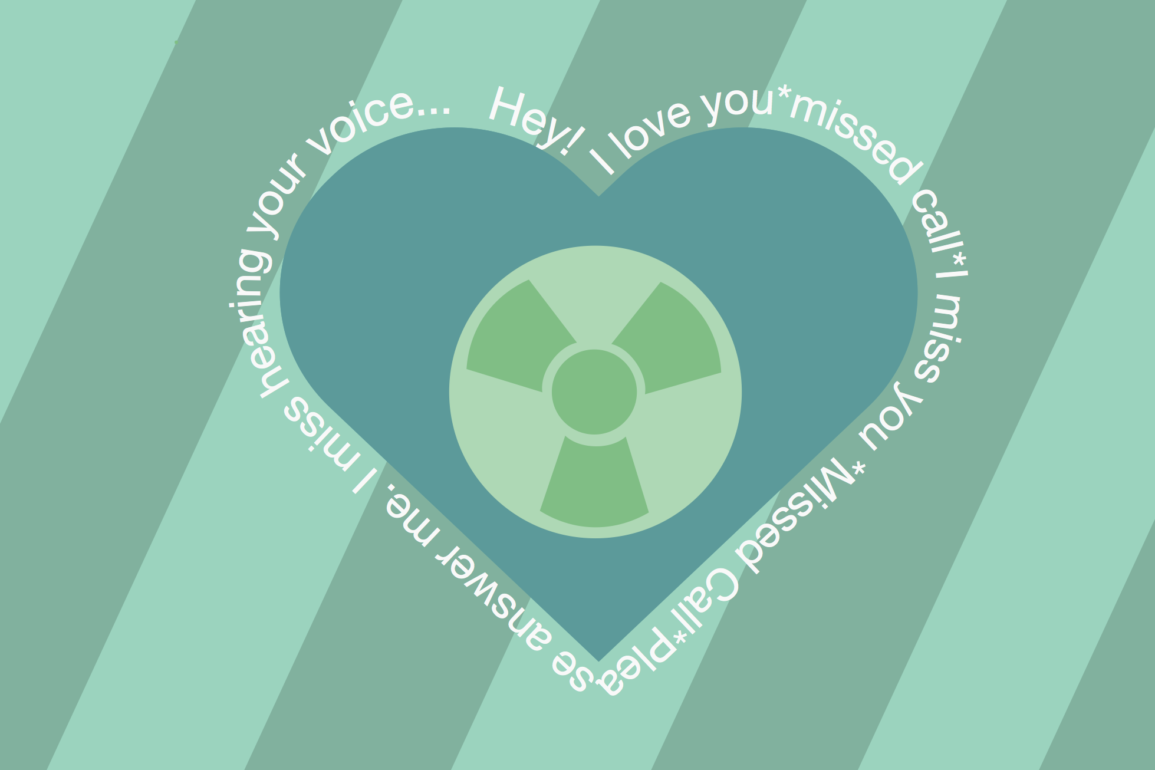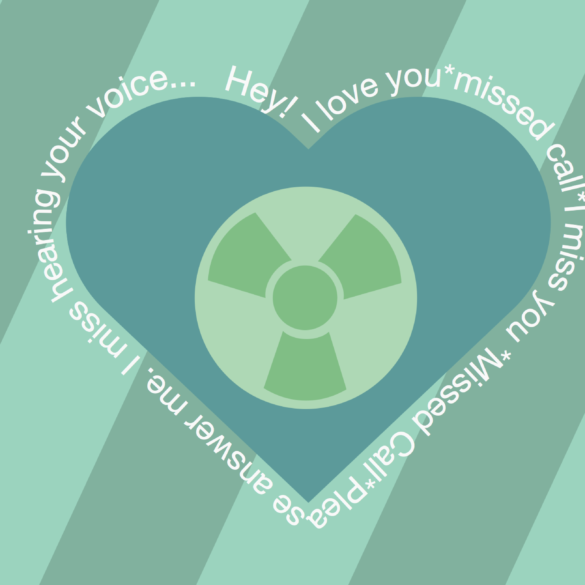Relationships can be unhealthy regardless of the level of attachment.
Megan Lynch was 24 when she met Aaron at a bar in Baltimore. He was attractive, he liked to party, and she needed to blow off steam since beginning her PhD at the University of Maryland School of Medicine. He was a perfect solution for a while, but it wasn’t supposed to be serious.
Her fling turned into a six-month relationship, which continued even when he began to physically and emotionally abuse her.
According to a study published in the Proceedings of the National Academy of Sciences, relationships have as much of an impact on one’s health as exercise and diet. Romantic relationships aren’t the only type that can be unhealthy, though. Friendships and professional relationships can also be toxic to a person.
Mellisa Holtzman, a sociology professor at Ball State University, says that open communication, honesty, and mutual respect are key aspects of a healthy relationship. If those aren’t there, both the health of the relationship and the people involved can suffer.
In Romance
The abuse started a month into the relationship. He made her feel inadequate, comparing her to ex-girlfriends who did more for him than she did. Megan thought that if she did what he wanted, he would be nicer to her.
In the back of her mind, she didn’t think their relationship was serious, so she just dealt with the abuse. They were just a fling, she would continuously think. We have different lifestyles, social statuses, and education levels. She didn’t think it would matter in the long run.
Aaron got angry easily—especially when Megan didn’t check in frequently with him throughout the day. He would text or call her asking where she had been even if it was simply a trip to the store. Megan didn’t think this was necessary to tell him, yet he acted like it was a huge deal.
The Violence Prevention Initiative defines abuse—physical, emotional, psychological, or verbal—as a pattern of behavior that is meant to establish and maintain control over another person. This is what Megan’s boyfriend was doing to her.
Five months into their relationship, Megan received a message from her boyfriend demanding she pay his lease on his apartment. If she didn’t, he would take the car her father gave her and drive himself off a bridge. He had stolen the key months before, so she knew it wasn’t an empty threat. She went with him to give the landlord $1,500.
Shortly after that, when they had returned to Aaron’s apartment, the two got into another big fight, even forcing Megan to grab a knife for protection. After Aaron stole the knife from her, she ran outside, and Aaron chased her in her car, threatening to run her over unless she got in with him. She eventually relented, but after he dropped her off at her apartment, leaving in her car, she and her roommate called the police.
After a phone call with her dad, explaining what had happened, Megan’s parents drove three hours from their home to pick her up. She didn’t want to be around Aaron for a while, and thought it would be good to get away.
Aaron’s actions showed several warning signs of abusive behavior, according to Helpguide.org, a resource for domestic violence and abuse. The website also says people who are in abusive relationships may seem anxious to please their partners, and often go along with what they say.
Megan thought that time apart would make Aaron leave her alone, but she was wrong.
Even after ending their relationship, Megan would still hear from Aaron. He still called her, wanting to know what she was doing.
One evening, Megan went to a friend’s apartment not expecting Aaron to also be there. After seeing each other, Megan did her best to leave quietly. But Aaron chased her down the street, cornering her, and even pulling her into the shadows. She screamed as he punched her in the face, busting her lip open, and knocked her to the ground.
Aaron continued trying to contact her. He even messaged her on Facebook and said if he ever saw her again, he would throw acid on her.
After this, Megan filed for a restraining order against him. She had to go to court three times and saw him one of the times in court for the assault charge.
After the restraining order, Megan got a phone call from a number she didn’t know.
“Megan, why are you doing this?” She heard Aaron’s voice ask.
Aaron is currently in jail for violating the restraining order and contacting her. Megan’s bruises faded and disappeared, but her mental health didn’t heal quite so easily.
Justin Lehmiller, a professor of psychology counseling at Ball State, says someone who has recently gotten out of an abusive relationship or situation should seek social support from family and friends, as well as seek professional counseling. Many psychologists and counselors have received formal training to help survivors of domestic abuse cope.
Megan has struggled with how to act in new romantic relationships. But through therapy, she is trying to make amends with the past. Recently, she got her first tattoo at a bachelorette party. She got a lotus flower on her side. When she feels mad or sorry for herself, her tattoo is a reminder of new beginnings and that healing is a process.
With Friends
Aren Tibbits’ 2016 spring break started with a drive to Cocoa Beach, Florida with four of her closest friends.
On one of the first nights of their vacation, Aren’s friends matched with a group of guys on the dating app Tinder. They decided to go hang out with the guys, but they told Aren she couldn’t come because she was currently talking to someone. Instead, they made Aren drop them off.
According to Psychology Today, one sign of a toxic friendship is when your friends consistently disappoint you, like Aren’s friends had started doing to her.
The group decided to drive more than an hour away to Daytona during the vacation. Aren went with the girls to hang out at their friend’s hotel room but she wound up having sun poisoning and didn’t feel well. She asked her friends if they could drive back to their place at Cocoa Beach.
They agreed, so Aren headed down to the van to wait for them. She waited half an hour alone in the van eventually texting them to make sure they were leaving soon.
Her friends ignored her text.
Convulsing in pain from the sun poisoning, Aren told her friends that she would leave without them if they didn’t come with her.
Lehmiller says that a lack of communication or communication with a negative tone can be a sign of an unhealthy relationship.
It was about 11 p.m. when her friends finally came to leave, but they weren’t happy with her. They called her selfish, lacking empathy for the pain she was in. They took the keys out of the van, slammed the door in Aren’s face, and left without her, not telling her where they were going and ignoring the texts she sent the following hours. They didn’t return to the van until 4 a.m., leaving Aren to feel stressed and alone.
Holtzman says sometimes people stay in unhealthy relationships due to their attachment styles. There can be secure, avoidant, and anxious attachments. These can be developed during childhood experiences. Understanding your own attachment style can help from forming or staying in unhealthy relationships.
Throughout the trip, the girls constantly left Aren to hang out with random guys and even accused Aren of being romantically involved with a guy who was just her friend. Even though they didn’t seem to believe her, Aren says two of the girls ended up kissing that same guy during the trip.
According to the General Social Survey, in 2004 the average network size had decreased by about a third from 1985. The average American in 2004 claimed to have no one to confide in.
A person with a secure attachment style is more likely to walk away. While Aren didn’t cut off all contact with the girls from the trip, they are not nearly as close as they once were.
At Work
When Erin Hall noticed that one of her coworkers had a crush on her, she didn’t think too much of it. He was flirty and charming, but she assumed he was that way with all of the girls they worked with.
Erin sent him and a few of her other Snapchat friends a picture in just a long sweater one night. A few days later, he sent her an explicit picture. She sent back a picture of her chest. Not long after, he asked her for sex by saying, “I need to be frank with you, I think we should fuck in the near future. Sorry if thats super forward of me.” This shocked Erin and left her feeling degraded.
According to the U.S. Equal Employment Opportunity Commission, if someone considers what happens to them at work as intimidating, hostile, or abusive, it is unlawful harassment.
Erin had a relationship with a coworker at a previous job and was shamed by her boss. Her boss told her she was “better than that.” However, Erin felt that her relationship was not the kind of business her boss should be concerned with. That relationship was not impacting her work, but this new, inappropriate one was. Erin didn’t want to go through this kind of shameful interaction with her boss again.
According to the EEOC, 70 percent of women who experience sexual harassment at work don’t report it for reasons similar to Erin’s.
The man Erin worked with attempted to make her feel guilty for not wanting to have sex with him. “You’re a fool, I hope you know that,” he texted her, followed by, “We could have a lot of fun together if it weren’t for your hang ups.”
When Erin let him know these comments made her feel uncomfortable, he said they were just jokes. She felt that even though she nicely told him no and didn’t cut off all contact with him, that didn’t give him the right to keep pressuring her.
This situation made going to work tense and stressful for Erin. She could tell that his ego was hurt and he would take it out on her at work. She was often given the work no one else wanted.
According to Holtzman, sexual assault or harassment is most common between acquaintances. A person is less likely to use violence when feeling threatened by someone they know.
Going to work caused Erin’s anxiety and depression to worsen. She finds it hard to share personal information with others and beats herself up for not telling anyone about what was happening. Erin has left her job but is still impacted by her experiences there.
Unhealthy relationships can negatively impact health, whether that’s mental or physical. Having supportive friends, significant others, and coworkers goes hand-in-hand with living a healthy life.




